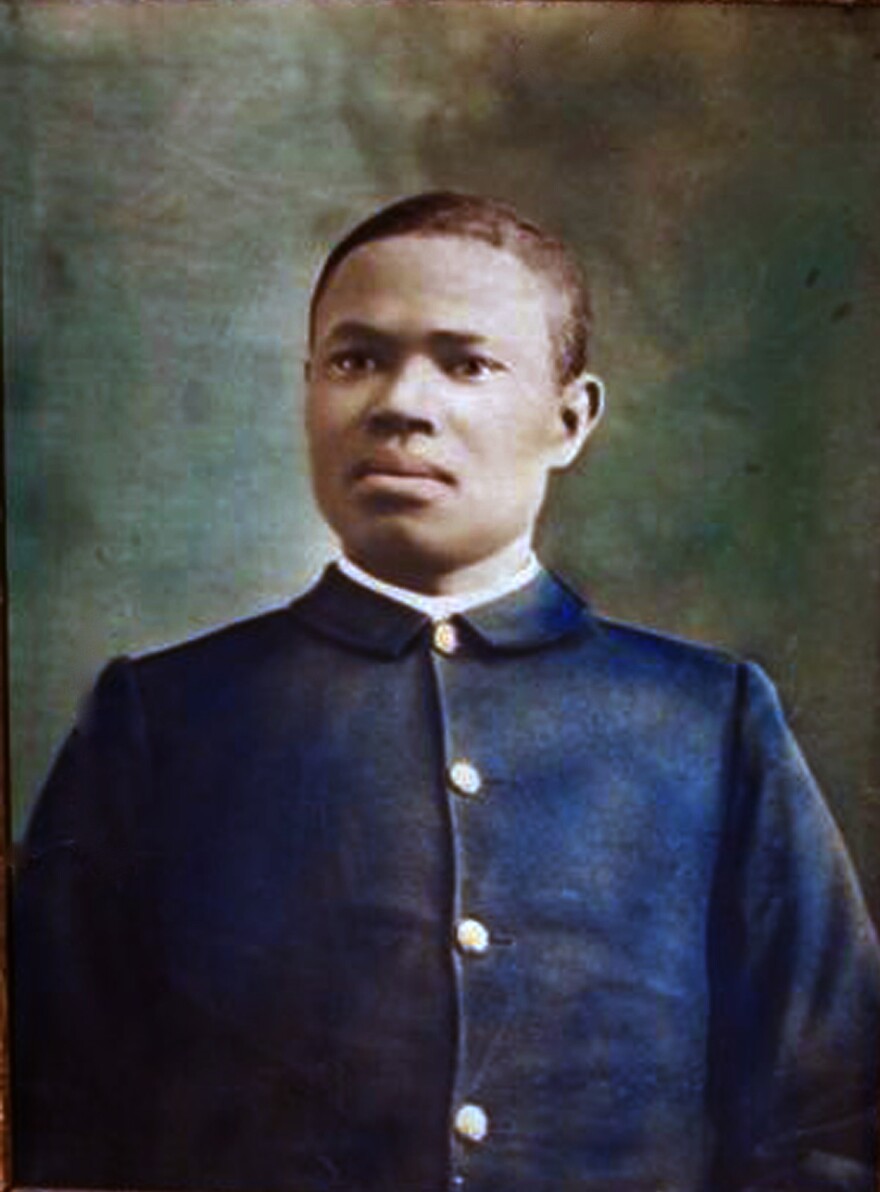The Arcadia Mill Archaeological Site in Milton is celebrating Black History Month with two public programs.
The first presentation this Saturday, Feb. 2 features the true story of an African-American ‘Buffalo Soldier’ from Florida and his journey to becoming a traitor and a hero.
Local author and historian Phillip Hoffman chronicles the story in his new book, David Fagen: Turncoat Hero.
“David Fagen was the son of former slaves, born in 1878 in Tampa, in a little black ghetto shanty town called The Scrub, named after the scrub Palmetto which the area was full of,” Hoffman said. “It was a pool for black labor and white developers who were rapidly developing the city of Tampa came there to get laborers. It was the height of Jim Crow.”
As a teenager, Fagen became involved in labor strikes in the Tampa area and already had scars from numerous brawls. At 20 years old, he was employed as a manual laborer for a phosphate company. According to Hoffman, it’s rough work, “They give him a sledge hammer very early in the morning, put him in the swamp waste deep and he’s wrecking phosphate off the banks.”
Half the crew are like Fagen, earning a buck a day. The other half are black prisoners, referred to as leased convicts, who work for just a couple pots of beans a day. “He’s aware by that time that life is awfully rough if you’re black and American,” said Hoffman of Fagen’s circumstance.
However, by this time in American history, black soldiers known as “Buffalo Soldiers” were the most experienced combat troops in the U.S. Army and, as a result, they were recruited to fight the Spanish in Cuba at Santiago.
One of the four black regiments of the day just happened to be based in Tampa.
“All of a sudden, there are 4,000 black soldiers carrying rifles and pistols wandering around Tampa city proper and they come from the far West where they are admired and loved because they were protecting whites,” said Hoffman, noting that these western blacks had not been exposed to southern prejudice.
“David Fagen immediately recognizes ‘Oh my gosh, wherever these guys are from is better than where I am,’ and where can I sign up, and where can I sign up.”
He does sign up on June 4, 1898, when he was 23.

After combat in Cuba, within a year, Fagen is deployed to Manila to fight in the Philippine-American War (1899-1902).
It doesn’t take long for Fagen, now a highly decorated combat professional, to defect to the Filipino Revolutionary Army. Hoffman believes he became disillusioned with the mission of the U.S. military in the Philippines.
“They believed that they were being sent to help fight a Tagalog warrior chief who, now that the Spanish had been kicked out of the Philippines, was trying to take over the whole country and govern it on his own, a tyrant.”
Hoffman explained their job, as they were told, was to get rid of the tyrant and establish democracy and freedom for the Filipino people.
“They had learned we weren’t there to help the Philippines establish a democracy. The United States was taking the Philippines. We were going to rule it by force.”
Hoffman describes a fight between the well-trained, well-armed American forces and impassioned Filipinos, with little training and very little fire power.
“We slaughtering Filipinos by the thousands,” said Hoffman, with an emphasis on the number. “And, we were torturing Filipinos to get information on the other Filipinos and we were executing Filipinos.”
Hoffman explains Fagen and other black soldiers, who had endured atrocities in the American Deep South, began to identify more with the plight of the Filipinos. After six months, he says, Fagen had had enough.
“He had made up his mind that he could no longer conduct himself as an instrument of white racism or American imperialism; he just didn’t want to do it anymore,” Hoffman said of Fagen’s decision to defect. “And, having come to that conclusion, he stole four pistols and a horse and he rode off and he joined the Philippine Liberation Army under Aguinaldo, the president of the Philippines.”

Commissioned as an officer, Fagen trained Filipino soldiers and was soon promoted to captain and given his own command. Hoffman says he was very successful as a fighter and achieved legendary status.
“He became the most notorious and hated American traitor of the Philippine-American War and simultaneously a Philippine hero. That’s how I got the name David Fagen: Turncoat Hero.”
Author Phillip Hoffman will share details about the book, which is available online at Amazon.com, and his theory of what happened to David Fagen during his Black History Month presentation this Saturday morning. The talk begins at 11 a.m. at the Arcadia Mill Archaeological Site in Milton.
On Saturday, Feb. 9, from 11 a.m. - 12 p.m., Arcadia Site Manager Adrianne Walker will present on recent historical and archaeological research on the lives of the enslaved at Arcadia. For more information visit the Historic Pensacola Arcadia Mill calendar of events.


